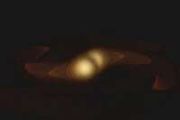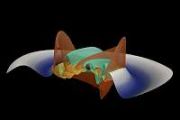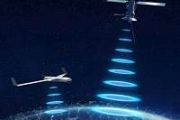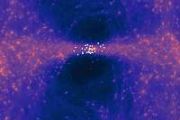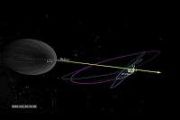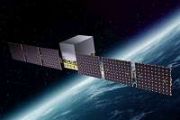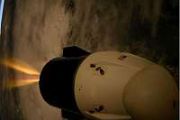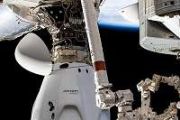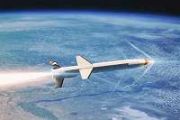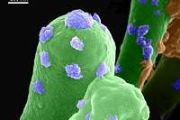
Copernical Team
NASA Hosts OSIRIS-REx Sample Lab Media Day in Houston
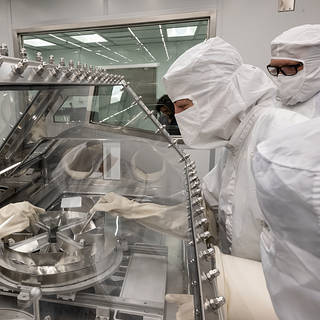 Ahead of the first asteroid sample collected by the U.S. arriving on Earth in September, media are invited on Monday, July 24, to see NASA’s newly-built OSIRIS-REx Sample Curation Laboratory where the agency will study the sample at its Johnson Space Center in Houston.
Ahead of the first asteroid sample collected by the U.S. arriving on Earth in September, media are invited on Monday, July 24, to see NASA’s newly-built OSIRIS-REx Sample Curation Laboratory where the agency will study the sample at its Johnson Space Center in Houston. Complex organosulfur molecules on comet 67P: Evidence from Rosetta orbiter and the lab
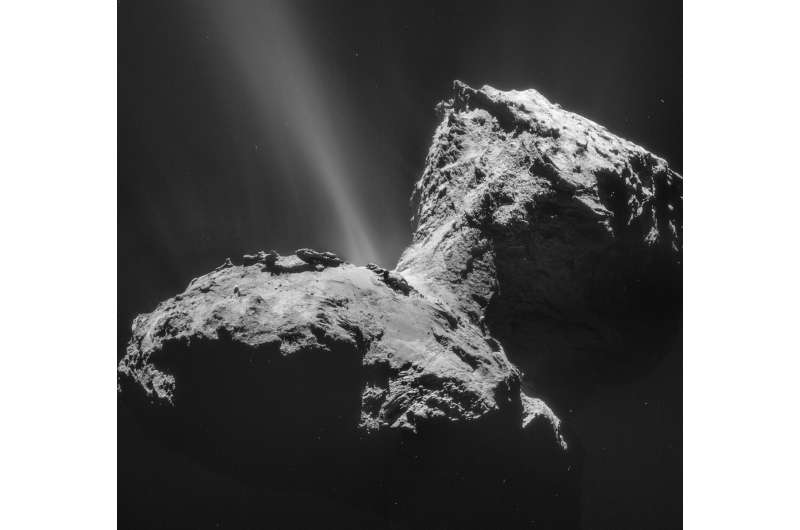
The Rosetta orbiter spectrometer for ion and neutral analysis (ROSINA) instrument orbited comet 67P to revolutionize our understanding of cometary material composition. A key finding of the satellite was to explore the composition of comet 67P/Churyumov-Gerasimenko. In a new report published in Science Advances, Ahmed Mahjoub and a team of planetary scientists in the Jet Propulsion Lab at CalTech, the Space Science Institute Colorado, and the University of Bern in Switzerland, used the ROSINA data to study dust particles volatilized during a dust event in September 2016.
The scientists reported the detection of large organosulfur species, on the comet's surface. They then conducted laboratory simulations to indicate the formation of this material from chemical reactions initiated by irradiating mixed ices containing hydrogen sulfide. The results highlighted the significance of cometary sulfur chemistry and its presence in precometary materials to facilitate the detection of organosulfur materials in other comets and icy small bodies by using the James Webb Space Telescope.
Space debris: A quantitative analysis of the in-orbit collision risk and its effects on the Earth
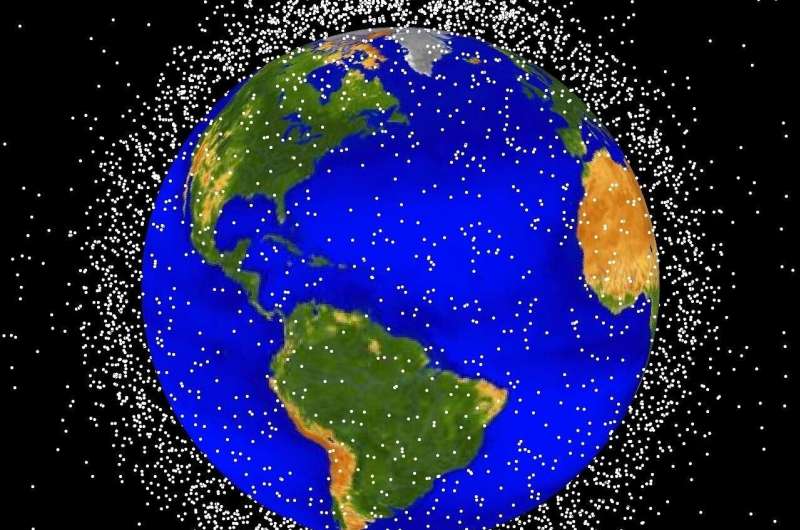
The amount of space debris has not stopped increasing since the first satellite was launched in 1957. The European Space Agency (ESA) estimates that there are more than 131,000,000 useless space waste objects, between 1 millimeter and 10 centimeters, currently orbiting around the Earth at an average speed of 36,000 kilometers per hour, which come from different sources such as last stages of rockets, satellites that are no longer operational, and even tools lost in space by astronauts.
"Any piece larger than 1 centimeter is potentially lethal in case of collision," says the Professor at the University of Malaga José Luis Torres, who, together with Professor Anelí Bongers, has coordinated a project on Space Economy that establishes, from a quantitative point of view, a theoretical model that determines the rate of satellite launches that is optimal to maximize benefits based on the amount of space debris.
Particularly, using data from the NASA and the ESA, the developed model is based on computational simulations that analyze the effects of anti-satellite tests on the amount of space debris and the probability of collision with operational satellites –there are currently around 6,000 satellites in orbit.
Gravity goes lunar: putting LESA to the test
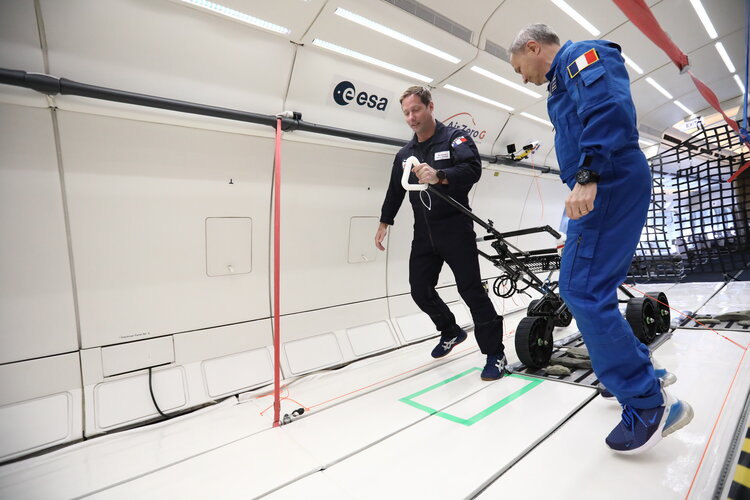 Image:
Testing the Lunar Equipment Support Assembly (LESA) investigation during a partial gravity parabolic flight.
Image:
Testing the Lunar Equipment Support Assembly (LESA) investigation during a partial gravity parabolic flight. Spacesuit design: Maurizio De Vincentiis
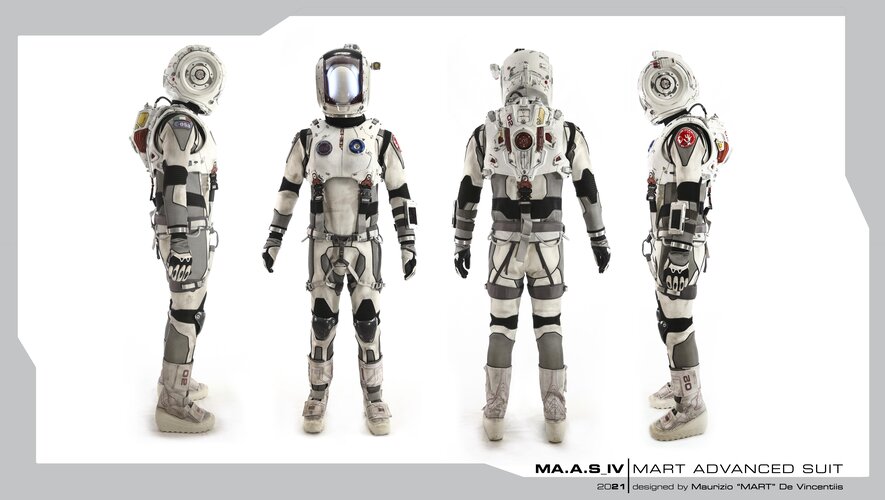 Image:
Spacesuit design: Maurizio De Vincentiis
Image:
Spacesuit design: Maurizio De Vincentiis Hera Propulsion Module leak test – time-lapse
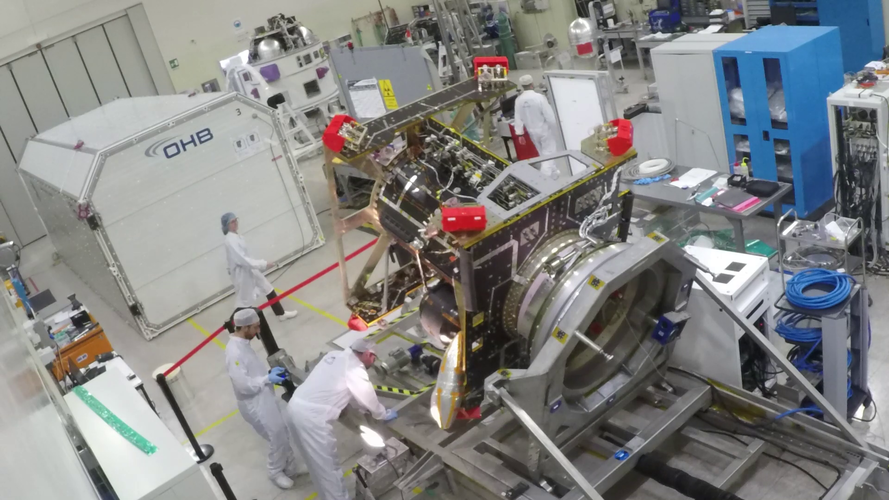 Video:
00:02:23
Video:
00:02:23
ESA’s Hera mission for planetary defence will perform a close-up survey of the Dimorphos asteroid in deep space. But first Hera needs to cross millions of kilometres of space to get there. That is the task of Hera’s Propulsion Module, forming around half of the overall spacecraft, which has been prepared by Italy’s Avio company. Formed of a central tube plus a supporting structure, the Module has been fitted with propellant tanks, piping and thrusters (inside the red protective covers). But before it can be joined to Hera’s other element, the Core Module, this Propulsion Module had
Week in images: 26-30 June 2023
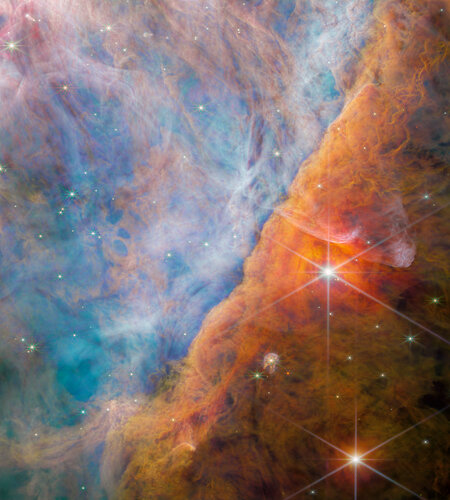
Week in images: 26-30 June 2023
Discover our week through the lens
Mission control is GO for Euclid launch
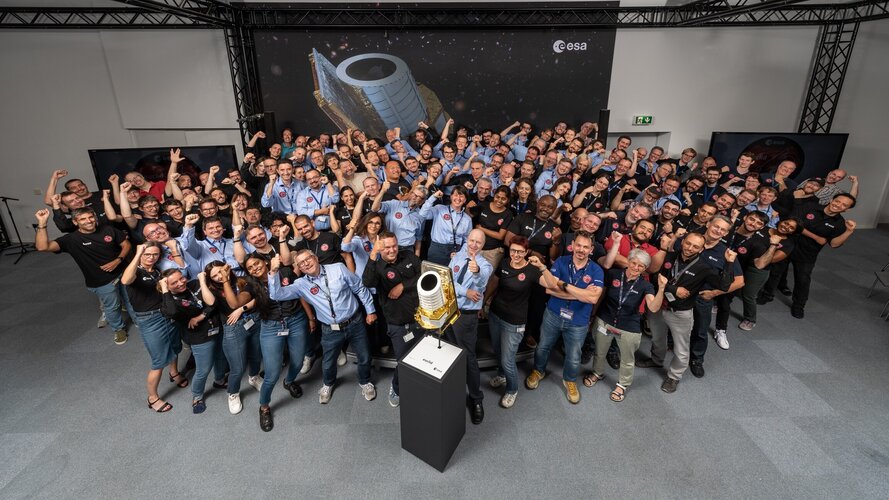 Image:
Euclid ore-launch briefing complete at ESA's mission control
Image:
Euclid ore-launch briefing complete at ESA's mission control Space to empower rural food producers

ESA has strengthened their partnership with the UN International Fund for Agricultural Development (IFAD) to help vulnerable small-scale food producers not only increase their ability to grow food but adapt to climate change by using state-of-the-art Earth observation data.
Australia-first communications network paves the way for high-speed data in space
 The $6.5 million project, which has received a $4.4 million grant from the Australian Space Agency, $500,000 each from the Western Australian Government and The University of Western Australia, will employ a new technology that uses super-fast lasers to talk to satellites and spacecraft.
It's called 'free-space optical communications', and it's 1000 times faster than the radio communicatio
The $6.5 million project, which has received a $4.4 million grant from the Australian Space Agency, $500,000 each from the Western Australian Government and The University of Western Australia, will employ a new technology that uses super-fast lasers to talk to satellites and spacecraft.
It's called 'free-space optical communications', and it's 1000 times faster than the radio communicatio 








